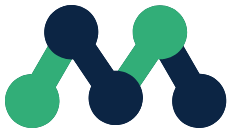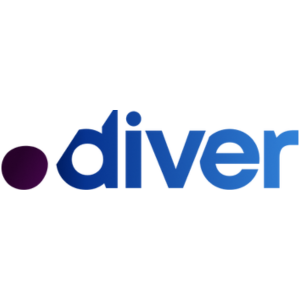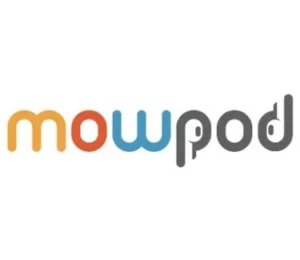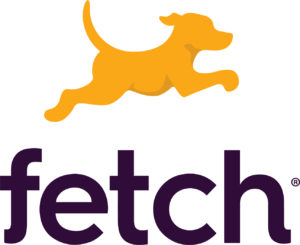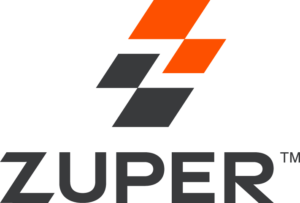Content Business Week — Finding & Vetting Guests
Benjamin Shapiro
benjshap LLC
- Part 1 Content Business Week — Finding & Vetting Guests
- Part 2Content Business Week — Syndicating Content
- Part 3Content Business Week — Monetizing Content
- Part 4Content Business Week — Audience Engagement
- Part 5Content Business Week — Repurposing Content
Show Notes
Quotes
-
“I do remember coming in at the phase of still aggressively working on outreach. Finding guests to bringon to our show that was well before the tipping point of being able to have guests organically come in to finding us.” -Todd “When I decided I am going to start producing the MarTech podcast it was meant to be a lead generation service for my consulting business. The idea was I am going to interview some of the most influential people that I knew in marketing with the hopes of being able to attract people that I didn’t know and that would be an introduction to them and hopefully I could build a businessrelationship and sign them on as consulting clients.” -Ben “Step one for me, for creating content was actually going and trying to do it myself. It is an important phase for learning content production and that goes with whatever medium you are workingin. My advice is at first try to get scrappy and try to do it yourself that way at least you understand some of the dynamics.” -Ben“What I did, after doing my first interview which I believe was with Greg Isaacs. It was a very sort of organic process for me to go through the interview. I had some questions planned out and I emailed him in advance. Then we turned the mic on, it was really about him educating me.” -Ben “The approach we took in finding editors was vetting several at a time and then getting those pieces of content. Essentially then based on the skill and the communication and the overall working relationship with that editor we chose on and go on from there.” -Todd “When we were looking for editors what we’ll do is we’ll say, ‘Hey, we have one paid project and we want you to edit 25 minutes of audio for one episode and if you do a good job we will have recurring work for you.’ So we will hire three or four people to edit one episode.” -Ben“We were not just looking for how well they edit the episode, we are also looking at how they responsive they are, how good of a communicator they are and now that we have a world-class editor, what we are doing is we are taking the audio files that our editors give to us to vet and handing it to our editor to get his professional opinion because our virgin ears might not be able to distinguish some of the editing hacks.” -Ben“Generally, what we have seen with audio editors when they are in Upwork we’ve seen that the range is $15 to $25 for a professional editor and some of the filters that I would put on are that they are an excellent English speaker, generally 4 to 5 starts in Upwork rating and we’re also looking for how much work they’ve done and what their ratings are. As well as how responsive they are, how interested they are in the project and do they have the time and flexibility to take on an ongoing project.” -Ben “My advice to anybody who is creating some sort of content asset is, you don’t want to launch just one piece of content. The key to being successful in the content game is consistency and longevity.” -Ben“I created about ten pieces of content before I actually launched the MarTech podcast and we were launching one episode a week and the copies of content were about an hour. Our content format changed dramatically since then.” -Ben “A couple of advantages of shortening our content and publishing for frequently is the digestibility of 15-20 minutes of a piece of content fits nicely into a commute, or a quick workout and fits into our attention span pretty well.” -Todd “When we started breaking it into two parts we also found that it lets you have two days of the week worth of content even as you spend an hour recording an interview and to your point about consistency, that can make the time that we spent in these conversations with expert marketers more efficient in the amount of content we can produce under a consistent schedule.” -Todd“The reason why we do that is we are looking at the data when we were publishing our long pieces of content and we saw that the drop off at half an hour was pretty severe, no one was listening to the episodes so I cut it into two pieces and all of a sudden we saw that people were listening to 65 or 75% of each episode and so we cut them down and got them into 15 to 20 minutes of episodes, we noticed an 80-90% consumption rate.” -Ben “In the early days we started withan email template that we use and change some variables and just general outreach basically explaining the purpose of our show and inviting that person to share some of their expertise and as a way for them to increase their reach and their message withinthe MarTech community and also as a way to give value back to this community.” -Todd“The idea there was, I am positioning it as ‘I’m giving you something that is of value’ and over time once we started to develop our audience we added more information to that email which was ‘Our audience reaches professional marketers, here’s how many downloads we get, here’s how many audience members, here’s how the show was rated, here’s where we are in the iTunes chart’ meaning you can add more credibility into that outreach.” -Ben “We have developed a system we call Syndication Score and it is a way for us to assess that overall reach that potential guests have within the MarTech community and it’s based on mostly their social media followers in LinkedIn and Twitter and also the domain ranking of their website.” -Todd “Once we started to creep into the Apple 200 people started reaching out to us to be guests. Now our content is interview-based so we need participants and that creates a medium for awareness distribution, direct response results for marketers.” -Ben “What we do is we vet the podcast first off for topic as we want to make sure that our content is relevant but since we have a backlog of potential speakers reaching out to us who is not only going to be great speakers but also who can potentially help us as a marketing channel.” -Ben “Finding guests gets easier over time and as we build credibility and influence, it’s an organic process.” -Todd
- Part 1 Content Business Week — Finding & Vetting Guests
- Part 2Content Business Week — Syndicating Content
- Part 3Content Business Week — Monetizing Content
- Part 4Content Business Week — Audience Engagement
- Part 5Content Business Week — Repurposing Content
Benjamin Shapiro
benjshap LLC
Up Next:
-
Part 1Content Business Week — Finding & Vetting Guests
Each day this week, we're going to publish an episode that walks you through how you can create, publish, syndicate, monetize, and scale a business where content is the product. Joining me today is the man behind the scenes here at the MarTech podcast -a Head of Content Production, Mr. Todd Hines. In part 1 of our conversation, we discuss finding and vetting guests for your content projects.
-
Part 2Content Business Week — Syndicating Content
Each day this week, we're going to publish an episode that walks you through how you can create, publish, syndicate, monetize, and scale a business where content is the product. Joining me today is the man behind the scenes here at the MarTech podcast -a Head of Content Production, Mr. Todd Hines. In part 2 of our conversation, we're going to talk about publishing and syndicating your content.
Play Podcast -
Part 3Content Business Week — Monetizing Content
Each day this week, we're going to publish an episode that walks you through how you can create, publish, syndicate, monetize, and scale a business where content is the product. Joining me today is the man behind the scenes here at the MarTech podcast -a Head of Content Production, Mr. Todd Hines. In part 3 of our conversation, we discuss content monetization.
Play Podcast -
Part 4Content Business Week — Audience Engagement
Each day this week, we're going to publish an episode that walks you through how you can create, publish, syndicate, monetize, and scale a business where content is the product. Joining me today is the man behind the scenes here at the MarTech podcast -a Head of Content Production, Mr. Todd Hines. In part 4 of our conversation, we talk a little bit more about the people that matter, your audience, and how to increase their engagement.
Play Podcast -
Part 5Content Business Week — Repurposing Content
Each day this week, we're going to publish an episode that walks you through how you can create, publish, syndicate, monetize, and scale a business where content is the product. Joining me today is the man behind the scenes here at the MarTech podcast -a Head of Content Production, Mr. Todd Hines. In last part of our conversation, we discuss repurposing content.
Play Podcast



